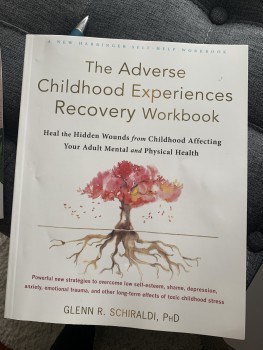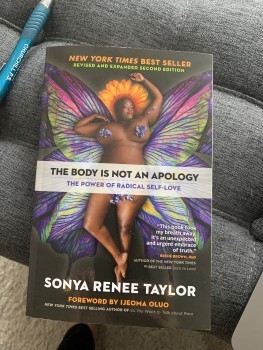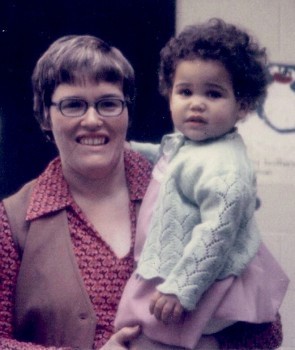quiet desperation
 I watched a really good movie this week: Another Round. In US films, when men have a midlife crisis, they buy a flashy sports car and ditch their wife for a woman half her age. But this Danish film revealed the quiet desperation of middle-aged men who lack the skills they need to understand their own misery. So instead they embark on an experiment to see how much alcohol they need to consume daily in order to improve their personal and professional lives. Not a healthy or sustainable strategy but the main character does begin to reconnect with his family, his students, and his creative self. The film is meant to be funny at times but beneath it all, it’s really quite sad. Why couldn’t these four men bond and help one another without relying on alcohol? Why didn’t they consider therapy or just communicate with their wives? What did they teach the next generation of young men about confronting pain and fear? When I first began experiencing symptoms of depression, I didn’t tell anyone how I was feeling. So many things unraveled in my life when I was a teenager but I just swallowed the shame and kept going. That was my survival strategy: sleep a lot, do the bare minimum at work and at school, and make it to college. Then, I thought, everything would change for the better. It didn’t, of course, but at college I met a friend who wasn’t
I watched a really good movie this week: Another Round. In US films, when men have a midlife crisis, they buy a flashy sports car and ditch their wife for a woman half her age. But this Danish film revealed the quiet desperation of middle-aged men who lack the skills they need to understand their own misery. So instead they embark on an experiment to see how much alcohol they need to consume daily in order to improve their personal and professional lives. Not a healthy or sustainable strategy but the main character does begin to reconnect with his family, his students, and his creative self. The film is meant to be funny at times but beneath it all, it’s really quite sad. Why couldn’t these four men bond and help one another without relying on alcohol? Why didn’t they consider therapy or just communicate with their wives? What did they teach the next generation of young men about confronting pain and fear? When I first began experiencing symptoms of depression, I didn’t tell anyone how I was feeling. So many things unraveled in my life when I was a teenager but I just swallowed the shame and kept going. That was my survival strategy: sleep a lot, do the bare minimum at work and at school, and make it to college. Then, I thought, everything would change for the better. It didn’t, of course, but at college I met a friend who wasn’t  silent about the dysfunction in her own family. Lucy made me laugh out loud with her stories about “Cutesie Wootsie,” her frivolous stepmother, and soon we began swapping stories about how our fathers favored our obnoxious older sisters. Lucy took her own life a couple of years after graduation and for a long time I was angry; I blamed her family for causing her so much pain and not giving her the help she needed. I mourned the brilliance I saw in her that she couldn’t seem to see in herself. But I was also grateful for the way she modeled emotional honesty for me and by the time I reached NYC in the ’90s, I had at least some language with which to talk about my family. I found friends who were also grappling with their own difficult childhoods and we compared notes and shared resources. When you’re in your 20s, your childhood doesn’t feel that far away. I eventually found a wonderful therapist who listened as I laughed about my laissez-faire parents, and I tried to move on with my life. Now I’m nearly 50 and I realize that my childhood still doesn’t feel that distant; I’m still there, in a way, because I’m attached to that little girl and want to say all the things she wasn’t able to express at the time. I recently ordered a couple of books to help me with the healing process and have been quite energized the past couple of
silent about the dysfunction in her own family. Lucy made me laugh out loud with her stories about “Cutesie Wootsie,” her frivolous stepmother, and soon we began swapping stories about how our fathers favored our obnoxious older sisters. Lucy took her own life a couple of years after graduation and for a long time I was angry; I blamed her family for causing her so much pain and not giving her the help she needed. I mourned the brilliance I saw in her that she couldn’t seem to see in herself. But I was also grateful for the way she modeled emotional honesty for me and by the time I reached NYC in the ’90s, I had at least some language with which to talk about my family. I found friends who were also grappling with their own difficult childhoods and we compared notes and shared resources. When you’re in your 20s, your childhood doesn’t feel that far away. I eventually found a wonderful therapist who listened as I laughed about my laissez-faire parents, and I tried to move on with my life. Now I’m nearly 50 and I realize that my childhood still doesn’t feel that distant; I’m still there, in a way, because I’m attached to that little girl and want to say all the things she wasn’t able to express at the time. I recently ordered a couple of books to help me with the healing process and have been quite energized the past couple of  weeks. I started writing again and finished three new picture books. I got dumped by my film agent last week and decided to part ways with my literary agent this week. Now I’m thinking more deeply about the kind of career advice and support I need. Looking back at my childhood actually helps me understand my triggers and why I have a disproportionate response sometimes to criticism and rejection. I often tell kids during author visits that I write about 8-9 year-olds a lot because that was a pivotal year for me: I started a new school with almost no Black students or educators, despite having already skipped a grade I wasn’t placed in the gifted and talented program, and I had to fight every day for my teachers’ good opinion when it had been automatic at my previous school. Feeling invisible, underestimated, undervalued…knowing that those in charge may arbitrarily withhold things I need…I learned those lessons very early on. As a result I became braver, knowing I’d have to fight for what I felt I deserved. But these days, I’m tired of fighting. And, as I found out as a girl, being Black, female, and defiant comes with risks and penalties. On the one hand, I’m tired of finding
weeks. I started writing again and finished three new picture books. I got dumped by my film agent last week and decided to part ways with my literary agent this week. Now I’m thinking more deeply about the kind of career advice and support I need. Looking back at my childhood actually helps me understand my triggers and why I have a disproportionate response sometimes to criticism and rejection. I often tell kids during author visits that I write about 8-9 year-olds a lot because that was a pivotal year for me: I started a new school with almost no Black students or educators, despite having already skipped a grade I wasn’t placed in the gifted and talented program, and I had to fight every day for my teachers’ good opinion when it had been automatic at my previous school. Feeling invisible, underestimated, undervalued…knowing that those in charge may arbitrarily withhold things I need…I learned those lessons very early on. As a result I became braver, knowing I’d have to fight for what I felt I deserved. But these days, I’m tired of fighting. And, as I found out as a girl, being Black, female, and defiant comes with risks and penalties. On the one hand, I’m tired of finding  myself in the same situation over and over again. My mantra is “I can walk away and be okay” because I’ve stayed in unhealthy relationships in the past just to avoid conflict or rejection or abandonment. But I’m grateful that I can recognize the patterns in my life now and confront them with less anger. Healing matters more than accountability sometimes. No apology can change what happened in the past, but it’s possible to do the work so you don’t hurt yourself or anyone else. We excavate so we can “build back better,” right? Tonight I watched a documentary on hummingbirds, which reminded me of my unfinished family memoir The Hummingbird’s Tongue. There are so many projects I’ve put off because I’ve focused on writing for kids. Maybe it’s time to serve my adult self instead of speaking to that little girl who didn’t have the stories and mirrors and support she needed so long ago…
myself in the same situation over and over again. My mantra is “I can walk away and be okay” because I’ve stayed in unhealthy relationships in the past just to avoid conflict or rejection or abandonment. But I’m grateful that I can recognize the patterns in my life now and confront them with less anger. Healing matters more than accountability sometimes. No apology can change what happened in the past, but it’s possible to do the work so you don’t hurt yourself or anyone else. We excavate so we can “build back better,” right? Tonight I watched a documentary on hummingbirds, which reminded me of my unfinished family memoir The Hummingbird’s Tongue. There are so many projects I’ve put off because I’ve focused on writing for kids. Maybe it’s time to serve my adult self instead of speaking to that little girl who didn’t have the stories and mirrors and support she needed so long ago…



